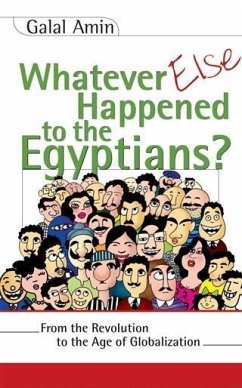At the time of the Egyptian Revolution in 1952, the population of Egypt was around 22 million. At the end of 2002, it stood at 69 million, and was growing at a rate of 1.33 million a year. What happens to a society that grows so quickly, when the habitable and cultivable land of the country is strictly limited? After the success of Whatever Happened to the Egyptians?, Galal Amin now takes a further bemused look at the changes that have taken place in Egyptian society over the past half century, this time considering the disruptions brought about by the surge in population. Basing his arguments on both academic research and his own personal experiences and impressions, and employing the same light humor and keen sense of empathy as in his earlier work, the author discusses how runaway population growth has not only profound effects on many aspects of society-from love and fashion to telephones, the supermarket, and religion-but also predictable effects on the economy.
Dieser Download kann aus rechtlichen Gründen nur mit Rechnungsadresse in A, B, BG, CY, CZ, D, DK, EW, E, FIN, F, GR, HR, H, IRL, I, LT, L, LR, M, NL, PL, P, R, S, SLO, SK ausgeliefert werden.

